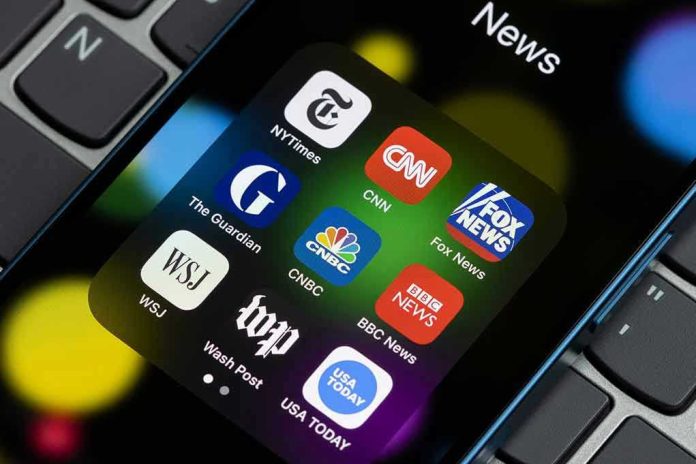
A former Washington Post fact-checker admits he was “completely wrong,” casting doubt on the media’s role in shaping public trust.
Story Overview
- Glenn Kessler expresses regret over dismissing the COVID-19 lab leak theory.
- Washington Post’s 2020 headline influenced public perception and media framing.
- Kessler calls for media accountability and the return of ombudsmen.
- Lab leak theory now seen as plausible by U.S. agencies.
Kessler’s Admission and Its Impact
In August 2025, Glenn Kessler, a former fact-checker for the Washington Post, publicly admitted his regret over a 2020 headline that dismissed the COVID-19 lab leak theory. The headline, “It’s Doubtful,” went beyond the article’s content, leading to significant media influence in shaping public perception. Kessler acknowledged the mistake in judgment and calls for greater media accountability have intensified, especially among conservative audiences skeptical of mainstream narratives.
This incident is particularly poignant as U.S. agencies, including the FBI and the Department of Energy, have now leaned toward the lab leak as the most likely origin of COVID-19. Kessler’s admission highlights the challenges faced by journalists in maintaining objectivity, especially in a polarized media environment where narratives often split along partisan lines. His call for the reinstatement of ombudsmen aims to improve transparency and trust in media organizations.
The Role of Media in Shaping Public Opinion
The Washington Post was among the first to dismiss the lab leak theory, aligning with the then-prevailing scientific consensus. This decision was influenced by both expert opinions and the political context, particularly skepticism toward claims associated with the Trump administration. However, as new evidence emerged, the narrative shifted, and Kessler revisited the topic in 2021, acknowledging that the theory had gained credibility.
This shift underscores the importance of editorial humility and adaptability in journalism. Media outlets are now facing calls to diversify news feeds and rely on independent oversight. The demand for reinstating ombudsmen reflects a growing need for mechanisms that can mediate between newsrooms and the public, ensuring accountability and fostering trust.
Media Accountability and Future Implications
In the wake of this controversy, media organizations are urged to reconsider their approaches to fact-checking and editorial decision-making. The erosion of trust in mainstream media has significant implications for public discourse and political dynamics. As the lab leak theory is now considered plausible, this turn of events highlights the fluid nature of scientific inquiry and the risks of premature conclusions.
Former Washington Post Fact Checker Acknowledges Piece He Was 'Completely Wrong About' https://t.co/fqAYq0pr3K
— J. Metz (@Metz1245John) August 18, 2025
Kessler’s public admission serves as a cautionary tale for journalists and media organizations worldwide. It emphasizes the need for rigorous fact-checking, balanced reporting, and a commitment to transparency. The call for greater editorial oversight and the reinstatement of ombudsmen could pave the way for more accountable and trusted media practices, ultimately reinforcing the role of journalism in a democratic society.
Sources:
Ex-WaPo Fact Checker Glenn Kessler Admits He Was Completely Wrong to Dismiss COVID Lab Leak Theory
Former Washington Post Fact Checker Admits He ‘Screwed Up’ COVID-19 Lab Leak Theory
Former Washington Post Writer: COVID Lab Leak Fact Check Is an ‘Infinite Regret’
Former Washington Post Writer: COVID Lab Leak Fact Check Is an ‘Infinite Regret’



